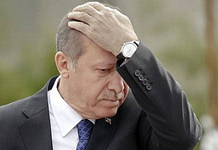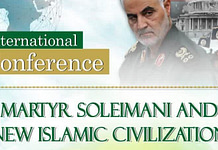The conflict over the Nile water raised up when every state on the Nile basin reclaim it’s right to control the water and to had it’s benefits according to it’s natural right, geographic position and economic needs. Currently we are living a very critical situation in Africa ( Nile area ) due to the water and especially after the threaten of many states to the use of force to protect their right over the water. since the beginning of civilization and due to the economic and climatic change Africa lived many wars and conflicts.
This conflict is old since the ancient Egyptians considered the Nile and the Delta as a god and were represented by the God Hapi. The recent history of the conflict over the Nile began in the 20 th century. The English realized the importance of the river for their colonies and the advantages the Nile offered for their commerce. The Nile became a dispute matter between the Nile Basin states when Egypt and Britain signed a pact in 1929 that gave Egypt and Sudan 75 percent of the Nile annual flow.
This dispute increased when Egypt and Sudan signed the agreement on the full utilization of the Nile waters in 1959 .
These agreements were refused from all other Nile Basin states that consider these pacts illegal. These states (Burundi, Rwanda, Tanzania, Kenya, Democratic Republic of Congo, Uganda, Ethiopia, and Eritrea) reclaimed rights over the Nile water and they considered that water was not fairly distributed. Ethiopia that contribute 86% of the combined Nile water flow at Aswan(Tedasse 2008), reclaimed sovereignty over the headwaters of the Nile Water Blue.
Ethiopian Foreign Minister Mesfin affirmed some years ago “No earthly force can stop Ethiopia from benefiting from the Nile“. From the another side, Egypt declared that the Nile water issue is a “ red line “ ( Al –Ahram Weekly 2010 ), and it will not allow anyone to change its percentage of the annual flow because it affects its national security. Tension is mounting between Egypt and Sudan and the other Nile Basin countries which accused them of alleged violations of the N.B.I agreement , Sudan threats to pull out of the initiative.
Ethiopia always declared that it has all the rights to exploit its own natural resources and no one could stop its will to construct dams on the Blue Nile. These positions and declarations alerted Egypt that declared that any similar act from Ethiopia will reduce its percentage on the Nile water and it will be considered as an act of war.
Nile Basin Initiative NBI :
The Nile Basin is characterized by poverty, water scarcity, ‘debt exacerbation ‘ (Abdallah 2009) insecurity in economic and social fields. This part of Africa is also living a quick increasing demand on water because of the growing populations in the region . Consequently the risk that Nile Basin could face a new armed conflict on water is high and probable; therefore there was the need to constitute a regional partnership to promote cooperation and development to face the economic and social problems highly presents in the region, to promote peaceful methods to resolve the conflicts and to promote the ‘ Win –Win solution ‘ (Tedesse 2008:20). For this aim in February 1999 it was formally launched the N.B.I. initiative by the water ministers of nine countries that share the river: Egypt, Sudan, Ethiopia, Uganda, Kenya, Tanzania, Burundi, Rwanda, the Democratic Republic of Congo (DRC), as well as Eritrea ( N.B.I 2010) .
The Nile Basin Initiative ( NBI ) is a regional partnership initiated to realize a shared vision ‘ to achieve sustainable socio – economic development through the equitable utilization of , and benefit from, the common Nile Basin water resources ‘ ( ibid ).
To achieve these aims the N.B.I works as an institutional mechanism and launch programmes that are supported by the World Bank and other external parties. The most important one is the Shared Vision Program (SVP). This program was presented to help the N.B.I to realize their shared vision, ‘ harnessing the resources of the river to create a better life for the 300 million people who depend on it ‘ (N.B.I 2010 ). This program focus on ‘water resources, the environment, power, trade, agriculture, applied training, communication and stakeholder involvement and benefit sharing ‘ ( Sudan tribune 2004 ).
The N.B.I is a real challenge that could change the life in the Nile Basin and introduce more development, peace, and more equitable use of the Nile’s water. This possibility to change is really high and it needs the cooperation of all the Nile Basin countries but the tension created since the 2010 agreement puts the N.B.I in risk.
On 14th of May 2010, four of the N.B.I countries (Rwanda, Ethiopia, Tanzania, and Uganda) opened the Cooperative framework Agreement for signature for a period of one year until 13th May 2011. ‘This Agreement will formalize the transformation of the Nile Basin Initiative into a permanent Nile River Basin Commission and facilitate its legal recognition in the member countries as well as regional and international organizations’ ( N.B.I 2010).
The up stream countries insist that Egypt and Sudan are in advantage concerning water sharing, so this status –quo should change. This agreement ‘was boycotted by Egypt and Sudan, both saying the pact is illegal’ (Karuhanga 2010). About this subject the Minister of Lands and Water management of Tanzania Hon. Ambassador Stanislas Kamanzi said that ‘ it is indeed regrettable they didn’t sign, but we will ensure it doesn’t derail the cooperative process that was contemplated with the creation of the NBI, hoping they will end up signing’ (ibid). After these events, declaration and acts, the question I ask here is. Has the N.B.I failed to achieve its goals?
The 14 May 2010 meeting is the answer on the above question, it is clear that the N.B.I failed in achieving the main role of its constitution, many parties are not satisfied from the results of the N.B.I in 11 years of work . The 2010 agreement increases tensions between the Nile Basin states and it could put in risk the future of the Initiative especially that in 2012 when it will finish its mandate especially after the 2011 event when the government of Burundi has signed the River Nile Cooperative Framework Agreement (CFA).This brings the number of the Nile Basin States that have so far signed the CFA to six.
Israel and the Nile:
Since the peace treaty signed between Egypt and Israel in 1979, the relation between the two states developed and Egypt was considered during Mubarak’s regime one of the most alliance of Israel in Middle East, but on the matter of water the two states have incompatible goals and Israel is trying to control the Egyptian percent of the Nile in order to have more control over the Egyptian policy in a future resolution of the Arabic – Israeli conflict.
The idea to obtain benifits from the Nile water is old as the establishment of the Zionist movement and the declaration of the State of Israel. In 1903 the founder of the Zionist Movement Theodor Herzl asked the British Government to accept the Sinai as the Hebrew home in order to have more control over the water ‘ (Almoslim 2004). To achieve this goal Israel is developing many projects to participate the Egyptian and Sudanese quota of the Nile.
Israel is also developing its relationship with the upstream states and in particularly with the most important nation in the Nile Basin “Ethiopia”. Actually there are many news on Israeli’s assistance to Ethiopia to build dams on the Nile, and in the last years the relationship between Israel and Ethiopia has improved especially during the visit of the Ethiopian Prime Minister Zinawi to Tel Aviv in July 2004.
Israel also has a very relevant role in the current situation in Sudan since it support the division and the Southern Sudanese Independence. In fact Israel recognized South Sudan on 10 July 2011, a day after South Sudan became an independent state. The independence of the Southern Sudan will influence the National Security of Egypt because of many aspects, such as geographic and strategic. In my opinion the new state in South Sudan will claim a higher percentage of water and so there will be a new part in this conflict.
It is important to specify that even there is a Peace treaty between the Government of Egypt and Israel, there is a deep hate between people and The recent demonstrations against the embassy in Cairo is a confirmation. The Government of Egypt should take seriously the fair of the citizens.
All these aspects alert Egypt and could create more tension and perhaps a war over water.
*Hamze Jammoul, expert in conflict resolution.
Bibliography and References:
Abdallah,H. (2009)Contemporary Civil Conflicts in the Nile Basin States. Digest of Middle East Studies, [Online ] available from http://search.ebscohost.com/login.aspx?direct=true&db=a9h&AN=41989556&site=ehost- live
Almoslim, the Israel role in the Nile Conflict, Almoslim net. [ on line ]. available from < http://almoslim.net/node/85413 > ( 02 August 2010).
Al masry al youm. (2010) Nile River Politics. [online] available from http://almasryalyoum.com/en/…/nile-river-politics> ( 20 October 2010 ).
Karuhanga, J. (2010) East Africa: Nile Basin Ministers to Meet in Ethiopia. [online] available from < http://www.allafrica.com/sories/201006250002.html > [12 October 2010].
Nile Basin Initiative ( 1999- 2010) Nile Basin Initiative .[ online] available from <http:// www.nilebasin.org > [10 August 2010].
Tadesse, D ( 2003) The Nile: is it a Curse or Blessing ? [online] available from <http://www.iss.co.za/ > [9 October 2010 ].
Questo articolo è coperto da ©Copyright, per cui ne è vietata la riproduzione parziale o integrale. Per maggiori informazioni sull'informativa in relazione al diritto d'autore del sito visita Questa pagina.




















